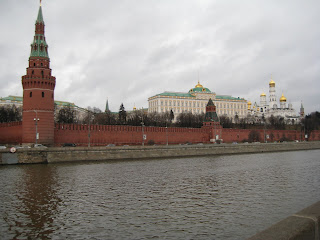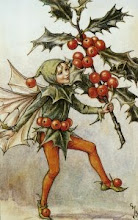With David Miliband in Russia this week to look up long-lost relatives and avoid talking plutonium with Sergei Lavrov, I have been thinking about what a strange and unique place Russia is.
My observations about the vast diversity that is modern Russia are based on a narrow perspective; I lived in Moscow for one year while working as a language teacher. My interest in Russia however, runs far deeper. A long standing Russophile, I majored in Russian history and politics at university and wrote my honours thesis on Vladimir Putin’s rise to power. Before moving to Moscow I began to learn Russian with a wonderful old Georgian woman who once worked in Afghanistan teaching the occupying forces mother tongue to some no doubt unenthusiastic locals.
There can be no question that Russia remains critical to global affairs. Its sheer size and rotting nuclear arsenal guarantee that it can never be left out of any international discussion for very long. Whether it is North Korea, Iran or Afghanistan, Russia plays an intimate role in all the most important geopolitical conundrums. In spite of this, many everyday Russians still feel that they lack the respect of the international community.
Smarting from the end of the Cold War, the dismantling of the Soviet empire and the wilderness years of Yeltsin, the past decade has seen Russia embracing tradition by turning to a strong-man leader to restore national pride. Vladimir Putin has enjoyed vast popularity as both President and Prime Minister of the Russian Federation and has a pop song dedicated to him to prove it. He is so beloved that it is possible he will be returned to high office in perpetuity – a very modern Tsar.
There is widespread apathy among many Russians when it comes to such political machinations. While we in the West may frown upon Putin’s manoeuvring as blatantly undemocratic, most Russians I’ve met are at least accepting of, if not downright enthusiastic about his ongoing reign. There is an undeniable tradition of centralised power in Russia and Putin has not only restored national pride but raised living standards as well. The fact that he has simultaneously dismantled the democratic credibility of the country means little to ordinary Russians who are far more economically secure now, current crisis notwithstanding, than they were 15 years ago.
What is strange is the level of concern the Russian authorities have for creating a veneer of democracy. One would think that having an acquiescing constituency would give the Kremlin some sense of invulnerability but that is clearly not enough for Putin and friends. During the last presidential election most of my students readily admitted that the outcome was preordained yet there was a widespread campaign of intimidation to ‘encourage’ people to vote for Medvedev. This was coupled with instances of outright fraud. One friend of mine’s father went to vote only to see that his wife and daughters (who hadn’t planned to vote at all) had already been ticked off the voting register by someone voting in their place. Given that the pre-election polls showed that Medvedev should have easily won the popular vote anyway, it is odd that the Government decided to pursue such tactics.
Fortunately, for all the convoluted high political dealings, there are many positive aspects to living in Russia. The Moscow metro is undeniably the best in the world. Ok so you do frequently end up feeling like a sardine in a tin can but the reason 9 million people use it every day is because it’s so damn efficient. The trains run 2mins apart and the stations are works of art. It also has the world’s longest escalators just for fun (unless you are in a hurry...).
Russians take art and their country’s contributions to it very seriously. My students were horrified to learn that we didn’t have to study Pushkin at school in Australia. When I told them that we studied Shakespeare instead they deemed it a second rate education. While the likes of Solzhenitsyn, Pasternak and Shostakovich remain more popular in the West than in their country of birth, there is deep and enduring pride in the countless other Russian members of the poetry, classical music, opera, literature, ballet and fine art pantheon. For someone who comes from a country where only sportsmen receive such elevation, it was a wonder to live in a place where artists were considered national heroes.
Similarly feted were veterans of the Great Patriotic War (WW2), which is basically any Russian over the age of 65 given that everyone of that generation was involved one way or another. It is difficult to describe how fundamental the Second World War was to shaping modern Russia. While the rest of the world may regard Stalin with abject horror, for many Russians (including Prime Minister Putin) he was a greatly misunderstood, brilliant war time leader. Ask any Russian who won the Second World War and they will tell you it was Russia. If you ask them about the contributions of the other allied countries, most people will tell you that they made a necessary but ultimately insignificant impact. Compared to the Russian sacrifice this is in many ways true but perhaps not the most tactful assertion if you want to boost your international standing. Every Victory Day, Great Patriotic War veterans dressed in their best and proudly wearing their medals watch the impressive military parade in Red Square and the surrounding streets. Many are handed flowers with heartfelt thanks by members of younger generations. It’s a genuinely moving sight. It is a great shame that veterans of Russia’s conflicts in Afghanistan and Chechnya are not treated with anything like the same level of care and respect.
Russia is still a violent place. While it has lost the Wild West feeling of the early 1990s when rival gangs regularly shot one another to pieces in public places, it is still quite easy to see blood flow in the streets. This goes hand in hand with the fact that alcohol is consumed with impressive regularity. Beer is considered a soft drink and you can frequently see people having one at breakfast time. Domestic violence is thought of as a family issue and the police are usually reluctant to respond. There is no law against rape within a marriage. There is even a saying ‘he wouldn’t beat me if he didn’t love me.’ However, if you are not in a violent marriage, a criminal gang or involved in heavy drinking sessions, the average person is not too likely to become a target for violence. Unless you are an investigative journalist, human rights worker, defence lawyer or political activist that is...
There is also the frightening spectre of far right nationalists. One night, while walking to a bar, I stumbled across a murder not long after it had occurred. There were lots of police, reporters and a dead body with its eyes still open lying in a pool of blood in the snow. Unlike many crimes, that one made the papers as it turned out to be a hate crime committed by skinheads - a totally innocent Tajik man was walking home when he was ambushed and stabbed to death on a street corner. Even among educated liberal-minded Russians runs a distinct vein of racism. An African or Chinese person might be met with no more than curious stares but woe betide anyone obviously from a Jewish or Muslim background. I was met with disbelief when explaining to my students that Caucasian and white were synonymous in English. Telling them that they were all of Caucasian appearance nearly led to a walkout. To be from the Caucasus is to be from a lower caste in the eyes of many European Russians.
Despite their open hostility to the people of the Caucasus and surrounding nations such as Georgia, Russians are quick to embrace their neighbour’s cuisines. This is probably due to the greater usage of spices in Caucasian food, ingredients distinctly lacking in traditional Russian food. Generally speaking a Russian meal is incomplete unless at least one dish contains lashings of mayonnaise and dill and maybe some sort of pickled fish. In fact my personal favourite combines all these plus beetroot and has the brilliantly translated name of “fish in a fur coat.”
My stay in Russia was alternately hard and rewarding, dull and surprising, routine and astounding. For every day I trudged to work to try to convince my students that you really do need to use articles and prepositions in English to avoid sounding like a caveman, I was richly rewarded with all the complexities of living in such an endlessly fascinating and important country. I do hope that David Miliband experienced as much.
Subscribe to:
Post Comments (Atom)




No comments:
Post a Comment